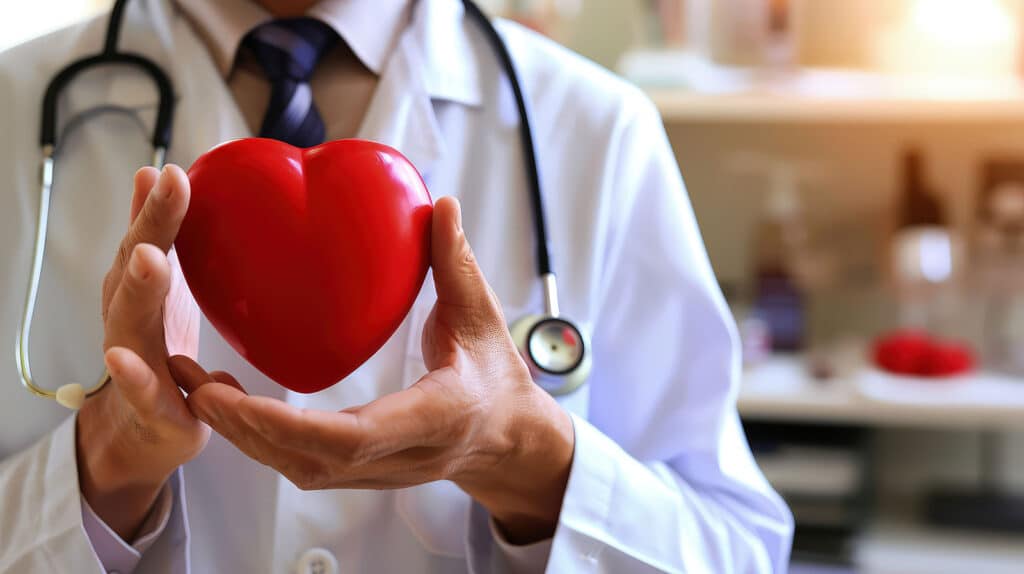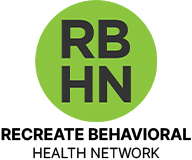Addiction is an insidious and all-too-common disease, but it rarely happens in a vacuum. For many people, it’s accompanied and exacerbated by one or more mental health disorders. This condition, called a dual diagnosis, imposes a variety of challenges that take a focused approach and specialized care to treat effectively.
Fortunately, there’s good news for residents in and around the Garden State. New Jersey is a leading center for the treatment of substance abuse and mental health disorders. The state boasts many highly regarded addiction facilities, including Garden State Detox. We recognize the difficulties of managing a dual diagnosis, and we offer integrated treatment programs designed to provide comprehensive, holistic support throughout the recovery process.
Dual Diagnosis: What You Need To Know
Substance use disorder (SUD) affects approximately 48.5 million Americans, with common substances of abuse including alcohol, marijuana, opioids, cocaine, and benzodiazepines. Nearly half of those with SUD also meet the criteria for a mental illness, a condition known as dual diagnosis. This often involves alcohol addiction or drug addiction co-occurring with mental health disorders. Addressing drug abuse, alcohol abuse, and substance abuse disorders requires specialized substance abuse treatment, often found in drug rehab programs, to manage both conditions for effective recovery from drug use and addiction. The conditions most frequently associated with substance abuse include:
- Depression and bipolar disorders (borderline personality disorder)
- Panic and Anxiety disorders
- Schizophrenia spectrum disorders (SSD)
- Attention-deficit/hyperactivity disorder (ADHD)
- Post-traumatic stress disorder (PTSD)
- Conduct and personality disorders (mood disorders)

Untangling Addiction and Mental Health
The relationship between mental disorders and substance abuse is complex and often interconnected. Adults with preexisting mental health problems are twice as likely to develop an addiction, often as a way to self-medicate. On the flip side, chronic substance abuse can trigger or worsen mental illnesses by disrupting brain chemicals and neurotransmitters. Without appropriate mental health treatment, this dual diagnosis can create a vicious cycle, with addiction intensifying the stress and symptoms of mental health disorders, leading to deeper dependence.
Know the Signs and Symptoms
Recognizing signs of addiction can be tricky for both the affected individual and the people around them. Unsurprisingly, the presence of a mental health disorder only complicates matters further. In addition, the stigma sometimes associated with these issues can make people reluctant to even broach the subject. Nonetheless, identifying and confronting the problem is a crucial first step in overcoming it. Co-occurring disorders may produce an assortment of physical, emotional and behavioral symptoms, including:
- Using substances to escape or self-medicate
- Developing cravings or physical withdrawals
- Engaging in increasingly risky or impulsive behaviors
- Avoiding friends, family or social activities
- Struggling to manage work, school or finances
- Behaving erratically or out of character
- Experiencing sudden or intense mood swings
- Neglecting hobbies, responsibilities or hygiene
The Challenges of Dual Diagnosis Treatment
Breaking the grip of addiction is never easy, but those with co-occurring disorders face uniquely difficult circumstances. While a variety of medical interventions exist for these conditions, individual treatments are rarely effective in isolation. Instead, patients dealing with a dual diagnosis need to be treated holistically in a setting equipped to manage both mental illness and addiction recovery. This requires support across a range of disciplines, from physicians and psychiatrists to therapists and substance abuse counselors.
Diagnosing Co-Occurring Disorders
Substance use disorder regularly occurs alongside many types of mental health issues, each of which may require a different approach to treatment. Likewise, mental illness itself is complex and multifaceted, often involving a range of overlapping symptoms, triggers and stressors. To ensure an accurate diagnosis, it’s important to begin with a thorough evaluation performed by qualified addiction and mental health professionals. This provides a better understanding of the patient’s individual needs and helps in developing a personalized treatment plan.
Why Integrated Treatment Is Essential
Because addiction and mental health are so closely linked, treating the disorders separately often leads to failure. Unresolved mental illness is a huge burden to recovery, reducing the chances of success in a standard addiction treatment program and greatly increasing the risk of relapse. Similarly, untreated substance abuse can exacerbate mental health issues and contribute to social isolation, financial difficulties, legal troubles and other environmental stressors.

Understanding Dual Diagnosis Treatment Options
If you or someone you know is struggling under the weight of substance use and mental health disorders, help is available. In fact, New Jersey’s top-notch rehab facilities offer an array of treatment options designed to aid in every phase of the recovery process.
Medical Detox and Stabilization
Everyone has a different path to sobriety, but it must always begin with discontinuing the substance of abuse. Depending on the substance and the individual’s history with it, this may involve a period of intense withdrawal symptoms. Not only are these symptoms physically and mentally demanding, but they can be potentially dangerous.
That’s why medical detox and stabilization is such a critical step in treating a dual diagnosis. Throughout the detox period, healthcare professionals provide 24-hour monitoring and medical care to manage withdrawal symptoms and alleviate physical discomfort. This keeps the patient stabilized and ensures they’re better prepared to proceed with further treatment.
Inpatient and Outpatient Rehab
Following detox, many people with a dual diagnosis respond best to a period of inpatient rehab. This affords access to around-the-clock care in a controlled, supportive environment, allowing residents to focus exclusively on getting well. Inpatient programs also facilitate more intensive treatment for patients with severe disorders.
Meanwhile, outpatient programs are better suited for those who need to attend to work and other responsibilities. They offer greater freedom and flexibility while still providing a high degree of in-person care and support. Patients typically participate in shorter treatment sessions three to five days a week, often continuing for at least three to six months.
Therapies for Dual Diagnosis
Therapy is an integral part of any addiction treatment protocol, but it’s especially valuable for a dual diagnosis. In particular, evidence suggests that cognitive behavioral therapy (CBT) and dialectical behavior therapy (DBT) are highly effective in treating a spectrum of co-occurring disorders. These therapies focus on changing harmful cognitive and behavioral patterns to aid in regulating emotions and developing specific coping strategies.
Many programs also incorporate group and family therapy sessions, which can help develop social skills, improve family bonds and foster a stronger support network. Patients may find holistic therapy beneficial as well. This approach includes a variety of activities aimed at reducing stress and boosting overall well-being, including yoga, mindfulness and art therapy.
Medication-Assisted Treatment
In patients who don’t respond well to supportive therapies alone, providers may also prescribe certain medications to aid in recovery. Some medications — such as methadone, buprenorphine, naltrexone and acamprosate — are used to ease cravings and prevent relapse. Other drugs may be employed to treat the symptoms of mental health disorders, including commonly prescribed antidepressants, anxiolytics and mood stabilizers.
Aftercare and Ongoing Support
While acute, short-term treatment is essential, achieving sobriety is not the end of the journey. True, lasting recovery is a long-term process that requires continuous effort and commitment. Fortunately, there’s no need to go it alone. Aftercare support and resources are available throughout New Jersey, including therapy and teletherapy providers, support groups, family workshops, relapse prevention programs and more. Help is also available statewide by calling the 24/7 ReachNJ Addiction Helpline at 1-844-732-2465.

Seeking Dual Diagnosis Treatment in New Jersey
Addiction and mental illness have taken a major toll on New Jersey residents and their families in recent years. In response, the state has made a concerted effort to provide greater access to treatment and resources for those dealing with a dual diagnosis. That’s why we’re proud to be one of several top-rated facilities across New Jersey offering integrated addiction and mental health services.
At Garden State Detox, we have a wealth of experience in treating co-occurring disorders. Our team has helped many people navigate the unique difficulties presented by a dual diagnosis, providing the tools and support needed to achieve meaningful recovery. We believe there are three key pillars to our success, including:
Evidence-Based Dual Diagnosis Programs
While conventional addiction treatments are effective for many people, those with underlying mental health conditions often need more advanced care. As such, we take a holistic and comprehensive approach, working with individual patients to develop programs tailored to their specific challenges and needs. At every stage, we integrate a wide range of evidence-based treatments with traditional therapies to promote healing, wellness and recovery.
Skilled and Compassionate Professionals
Patients with co-occurring disorders often have complex needs, requiring treatments spanning a variety of disciplines. To accommodate these needs, Garden State Detox has built a large and diverse staff featuring highly skilled physicians, therapists, psychiatrists and other professionals specializing in dual diagnosis treatment. Our multidisciplinary team is committed to delivering compassionate, respectful, patient-centered care using the latest techniques and approaches.
Supportive and Well-Equipped Facilities
Patients make the best progress in treatment when they feel comfortable and supported. At Garden State Detox, we offer a safe, judgment-free treatment facility with excellent amenities and services designed to promote healing. Our clinicians provide comprehensive care, including dual diagnosis treatment programs for those struggling with both addiction and behavioral health issues. We offer personalized care plans, including residential treatment, intensive outpatient services, and medication-assisted treatment. Whether for yourself or a loved one, we ensure the most effective treatment possible at our state-of-the-art rehab center.


